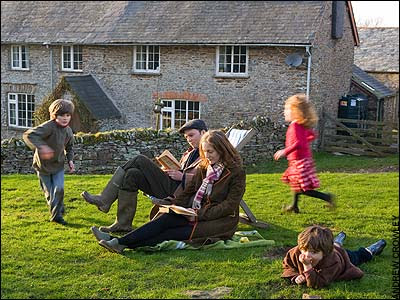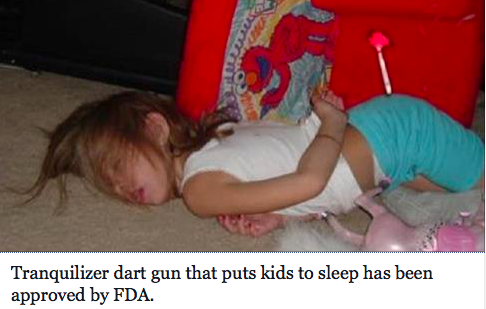Review – The Idle Parent by Tom Hodgkinson: Leave the Child Alone!
Some people don't seem to understand the humorist in Tom Hodgkinson and feel irritated because he e.g. writes that tipsy mothers sitting around a bonfire are great mothers. Those people miss his main message, which contains a universal truth for mankind: loneliness creates sadness.
Loneliness seems to be a paradox to family life, but the modern nuclear family often creates for parents the experience of overwhelming loneliness and a sense of ineptitude to rear one's offspring. I talk out of experience.
The modern nuclear family is simply not suit to provide the same complex caring and nourishment, which the tribes of our ancestors did. Parents who are torn apart between job and children often suffer, because they feel that they get neither right; and often don’t find time to take care of themselves. The result is a downwards spiral both physically and mentally.
Hodgkinson suggests to team up with your friends and share the burden, even better yet, have fun together while being there for your children. Being part of a non-profit, parents-run kindergarten (www.spatzennest-shanghai.com) I know that our community can provide exactly such support to nuclear families, who - like in our case - live thousands of miles apart from their extended families. We meet at weekends, have dinner together and a few drinks, while our children have a great time with each other, without us having to worry about them.
The worrying, over-attentive parent is the negative protagonist in Hodgkinson's book. He suggest a positive antonym: the idle parent. The idle parent though, is not a selfish, ignorant slug; the idle parent must be understood as a complex lifestyle concept. When reading Hodgkinson’s detailed account and his many recommendations on how to be an idle parent, I could not help to be reminded of the central Taoist concept of wuwei | 无为,which sometimes is wrongly translated as non-action, but actually means action in the right moment. The idle parent acts not, because social paradigms of an ideal education force him to, the idle parent acts, when he feels that there is a true requirement to do so, i.e. guided by and atoned to the Tao. The idle parent is self-responsible. The idle parent does not listen to every whine of his child or to any government imposed top-down regulation on how to handle your offspring.
The idle parent is neither a wolf father nor a tiger mom. The idle parent can relate though to educational concepts of Montessori, Pestalozzi and Steiner, which all have one thing in common: the adult’s responsibility to provide an environment, which facilitates individual growth. It is not their duty though to force-feed youth with unsolicited information. As Tom Hodgkinson's puts it: in our quest to give our kids everything, we fail to give them the two things they need most: the space and time to grow up self-reliant, confident, happy, and free. He concludes: Leave the child alone.
Some people don't seem to understand the humorist in Tom Hodgkinson and feel irritated because he e.g. writes that tipsy mothers sitting around a bonfire are great mothers. Those people miss his main message, which contains a universal truth for mankind: loneliness creates sadness.
Loneliness seems to be a paradox to family life, but the modern nuclear family often creates for parents the experience of overwhelming loneliness and a sense of ineptitude to rear one's offspring. I talk out of experience.
The modern nuclear family is simply not suit to provide the same complex caring and nourishment, which the tribes of our ancestors did. Parents who are torn apart between job and children often suffer, because they feel that they get neither right; and often don’t find time to take care of themselves. The result is a downwards spiral both physically and mentally.
Hodgkinson suggests to team up with your friends and share the burden, even better yet, have fun together while being there for your children. Being part of a non-profit, parents-run kindergarten (www.spatzennest-shanghai.com) I know that our community can provide exactly such support to nuclear families, who - like in our case - live thousands of miles apart from their extended families. We meet at weekends, have dinner together and a few drinks, while our children have a great time with each other, without us having to worry about them.
The worrying, over-attentive parent is the negative protagonist in Hodgkinson's book. He suggest a positive antonym: the idle parent. The idle parent though, is not a selfish, ignorant slug; the idle parent must be understood as a complex lifestyle concept. When reading Hodgkinson’s detailed account and his many recommendations on how to be an idle parent, I could not help to be reminded of the central Taoist concept of wuwei | 无为,which sometimes is wrongly translated as non-action, but actually means action in the right moment. The idle parent acts not, because social paradigms of an ideal education force him to, the idle parent acts, when he feels that there is a true requirement to do so, i.e. guided by and atoned to the Tao. The idle parent is self-responsible. The idle parent does not listen to every whine of his child or to any government imposed top-down regulation on how to handle your offspring.
The idle parent is neither a wolf father nor a tiger mom. The idle parent can relate though to educational concepts of Montessori, Pestalozzi and Steiner, which all have one thing in common: the adult’s responsibility to provide an environment, which facilitates individual growth. It is not their duty though to force-feed youth with unsolicited information. As Tom Hodgkinson's puts it: in our quest to give our kids everything, we fail to give them the two things they need most: the space and time to grow up self-reliant, confident, happy, and free. He concludes: Leave the child alone.

